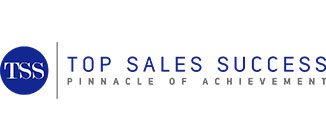Introduction
Benjamin Franklin famously advised fire-threatened Philadelphians in 1736 that “An ounce of prevention is worth a pound of cure.” This timeless wisdom is particularly relevant in the realm of sales. Conducting an Objection Prevention Workshop can significantly increase your closing ratio by proactively addressing and overcoming potential objections before they derail your sales process.
The Importance of Objection Prevention
Objections are a natural part of the sales process. However, they often hinder progress and reduce the chances of closing deals if not handled effectively. By anticipating and preparing for objections, sales teams can navigate these challenges more smoothly, leading to higher success rates and improved customer satisfaction.
Steps to Conduct an Objection Prevention Workshop
- Identify All Possible Objections
Begin by brainstorming and documenting every potential objection a prospect might have. This comprehensive list will serve as the foundation for your preparation.
- Script Objection Responses with Closing Questions
For each identified objection, create scripted responses that not only address the concern but also incorporate closing questions to guide the prospect toward a decision.
- Develop Supporting Sales Tools
Enhance and support your responses with relevant sales tools such as testimonial letters, support documentation, and case studies. These tools provide additional credibility and evidence to back your claims.
- Rehearse the Scripts in Role-Play
Conduct role-playing sessions where sales team members practice the scripted responses. This exercise helps build confidence and fluency in handling objections.
- Tweak the Scripts
Based on feedback from the role-playing sessions, make necessary adjustments to the scripts to ensure they are as effective as possible.
- Test Scripts on Customers
Implement the revised scripts in real sales interactions. Monitor the outcomes to gauge their effectiveness in overcoming objections.
- Make Final Revisions Based on Real-World Situations
Analyze the performance of the scripts in real-world situations and make final revisions to address any additional challenges that arise.
- Maintain a Master Notebook
Compile all the documents, scripts, and tools into a master notebook. Distribute this resource to all sales team members to ensure consistency in handling objections.
- Regular Group Meetings
Hold regular meetings to discuss any new objections encountered, share successful strategies, and continuously refine the scripts and tools.
Integrating Objections into Your Script and Discovery Process
Incorporating key objections into your sales script and discovery process ensures that you address concerns proactively. Here are some strategies to achieve this:
- Share Similar Situations
Tell stories about customers who faced similar situations and how they benefited from your solution. This approach helps prospects relate and see the value in your offering.
- Use Testimonials
Provide testimonial letters or videos from satisfied customers. These serve as powerful endorsements that can alleviate doubts and build trust.
- Highlight Articles and Stories
Share articles or stories about your product or company to provide additional context and credibility.
- Provide Comparison Charts
Use comparison charts to visually demonstrate the advantages of your product over competitors. This helps prospects make informed decisions.
- Share Personal Experience
Say, “My experience has shown…” to provide insights based on your professional expertise and history with similar situations.
- Listen to Customers
Acknowledge customer concerns by saying, “I listened to our customers – they had a concern about… here is what I did….” This shows empathy and a proactive approach to addressing issues.
- Admit Past Beliefs
Be honest by saying, “I used to believe… but I have changed and now I…” This approach can humanize you and build a connection with the prospect.
- Prepare Yourself
Preparation is key. Equip yourself with all necessary information and tools to confidently address any objection that arises.
Identifying the Type of Objection
Understanding the nature of the objection is crucial in addressing it effectively. Determine if the objection is a:
- Stall: The prospect is not ready to make a decision.
- Real: The prospect has genuine concerns that need to be addressed.
- Hidden: The prospect has underlying concerns they are not voicing.
Categories of Objections
- Value/ROI
“It sounds expensive….” Address this by demonstrating the return on investment and long-term value of your product.
- Urgency
“It’s not a priority….” Highlight the urgency and immediate benefits of addressing the prospect’s needs now.
- Credibility
“Can you handle it?” Provide evidence of your capability and track record to establish trust.
- Pain
“I don’t think we really need it.” Identify and amplify the prospect’s pain points to show the necessity of your solution.
- Authority
“It’s not up to me…” Engage with the decision-maker or equip the prospect with the information they need to persuade their superiors.
Conclusion
Conducting an Objection Prevention Workshop is a strategic approach to improving your sales performance. By identifying, scripting, and rehearsing responses to potential objections, and integrating them into your sales process, you can enhance your ability to close deals and build stronger relationships with your customers. Regularly revisiting and refining these strategies ensures continuous improvement and sustained success in your sales efforts.
By adopting these practices, your sales team will be better prepared to handle objections, leading to increased closing ratios and overall business growth.
About the Author
Tony Picciano is a business growth consultant specializing in strategic planning, sales training, and professional development for small to mid-sized businesses. With extensive experience and a DISC certification, Tony helps businesses achieve sustainable growth and success.
For more insights and professional advice, connect with Tony at tony@topsalessuccess.com. LinkedIn: linkedin.com/in/tony-picciano-836b16bb
TOP SALES SUCCESS GROUP LLC
WWW.TOPSALESSUCCESS.COM
440-497-0335 – Or – 419-350-4008


